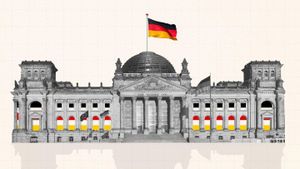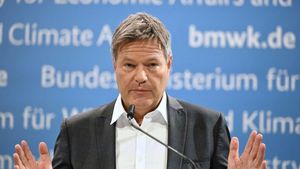Saudi Arabia is taking bold steps to revitalize its economy through a series of strategic measures aimed at fostering growth and diversifying its revenue streams. The government, led by its Ministry of Finance, has outlined plans for significant investment injections and job creation initiatives as part of its broader economic reform agenda.
According to Minister of Finance Mohammed Al-Jadaan, "We aim to create job opportunities and diversify our economy." This statement reflects the urgency and intent behind the government's strategy, which seeks to reduce the Kingdom's long-standing dependence on oil. The new measures are part of the Vision 2030 initiative, which sets ambitious targets for economic transformation across the nation.
The latest economic strategies include considerable investments across several sectors, including infrastructure, technology, and renewable energy. These initiatives not only promise to bolster the employment rate but also aim to attract foreign investment, which is deemed necessary for sustained economic recovery.
Economic analyst Fatimah Al-Mansour notes, "With these measures, we believe we can achieve sustainable growth." Her insights indicate strong expert support for the government’s plans, which are expected to yield positive returns over the next few years. The focus on diversification is particularly pertinent, as previous reliance on oil revenues has left the economy vulnerable to global price fluctuations.
Historically, Saudi Arabia has faced economic challenges, especially following the drop in oil prices several years ago. The need for reform became increasingly pronounced as the Kingdom looked to transition toward newer industries and economic practices. This latest round of economic measures reflects both the lessons learned from the past and the proactive steps needed to secure future prosperity.
The government is prioritizing projects aimed at enhancing the private sector’s role within the economy. This shift, bolstered by public-private partnerships, is aimed at creating a more resilient economic environment. Programs are being encouraged to innovate within traditional sectors, fostering entrepreneurship and stimulating the local market.
Additional measures outlined include tax incentives for businesses, streamlined processes for foreign investments, and targeted support for small and medium-sized enterprises (SMEs). This multifaceted approach not only helps to generate jobs but also empowers the workforce with the skills required for the modern economy.
While these reforms hold promise, they do not come without challenges. Some experts argue the need for caution, emphasizing the importance of well-structured implementation to avoid any unintended economic pressures. Ensuring stability during the transition from oil-centric revenues to more diversified income sources is viewed as pivotal.
Despite potential hurdles, the outlook remains optimistic. Industry leaders and economic analysts project positive momentum stemming from these initiatives, with hopes for improved international competitiveness. Investors and local businesses are encouraged by the government’s commitment to reform, viewing it as a signal of long-term growth strategies.
Moving forward, the outcomes of these measures will be closely monitored, with stakeholders eager to see tangible results. The commitment to transparency and communication from the Saudi government will also play a key role in maintaining public trust and investor confidence.
Therefore, as Saudi Arabia embarks on this transformative period, the road to economic diversification and sustainability appears well defined. The implementation of these measures is not just about immediate recovery but about reshaping the economic foundation for future generations.
The successful execution of this vision will not only determine the economic horizon for Saudi Arabia but could also provide lessons and frameworks for other oil-dependent nations attempting similar transitions.



